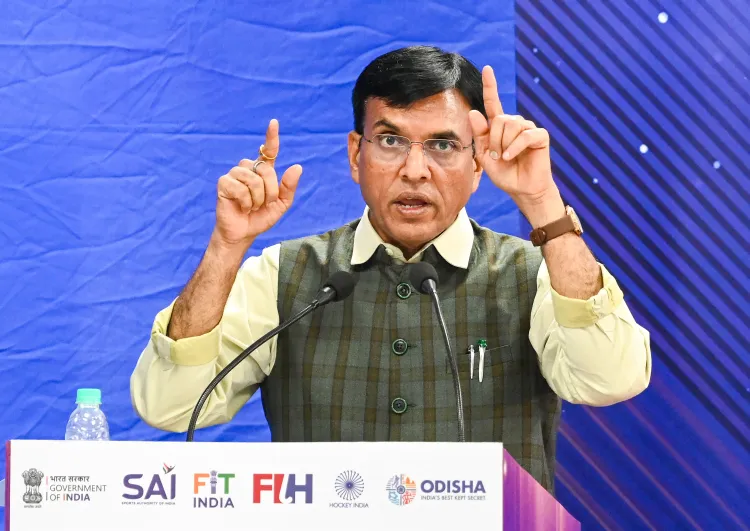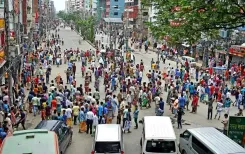Do New Labour Codes Signal a Shift in Worker Welfare?

Synopsis
Key Takeaways
- The new labour codes replace 29 outdated laws.
- They enhance worker rights and social security.
- Focus on safety and dignity in the workplace.
- Empowerment of gig and platform workers is a priority.
- Aligned with the vision of an Atmanirbhar Bharat.
New Delhi, Nov 24 (NationPress) - The Union Minister for Labour & Employment and Youth Affairs & Sports, Mansukh Mandaviya, stated on Monday that the groundbreaking labour reforms initiated by the government will significantly propel the vision of an 'Atmanirbhar Bharat'.
In a post shared on the social media platform X, the minister highlighted that the rollout of the four new labour codes represents a pivotal shift in India's labour dynamics.
Mandaviya pointed out that the PM Modi government activated all four labour codes on November 21, referring to them as a key initiative under the leadership of Prime Minister Narendra Modi.
He mentioned, 'On November 21, the PM Modi Government implemented the four Labour Codes, replacing 29 outdated labour laws,' in a statement on X.
These reforms, according to him, bolster the rights of the workforce and lay a solid groundwork for a progressive India. He emphasized that the new framework guarantees timely wage payments, ensures social security, and offers a safe and dignified working environment for employees. Additionally, the codes enhance protections for gig and platform workers and create more opportunities for women and youth.
Mandaviya remarked, 'These Codes are designed to be both pro-worker and pro-growth, establishing a strong foundation for universal social security, fair and prompt wages, safer workplaces, formal acknowledgement for emerging sectors like gig and platform workers, and greater empowerment for Yuva and Nari Shakti.'
Under the guidance of Prime Minister Narendra Modi, these reforms signify a transformative milestone in our pursuit of becoming an Atmanirbhar and Viksit Bharat, he articulated.
In his article, Mandaviya communicated that the new labour codes are set to foster a modern, balanced, and growth-oriented labour ecosystem.
Extensive discussions with workers and industry leaders revealed the necessity for enhanced clarity, equity, and respect within workplaces—principles that were pivotal in shaping the reforms.
The minister stressed that the laws aim to align employer expectations with worker welfare, prioritizing human dignity.
Supporting the government's reform agenda, Union Commerce and Industry Minister Piyush Goyal characterized the labour codes as a crucial step towards fortifying the workforce under the banner of Shramev Jayate. He stated that the four codes, recently dedicated to the nation under Prime Minister Modi's leadership, will empower workers, improve the ease of doing business, and accelerate India's path to becoming a global economic powerhouse.
Goyal encouraged citizens to engage with Minister Mandaviya's detailed insights, deeming them essential to grasping the transformative potential of these reforms.








